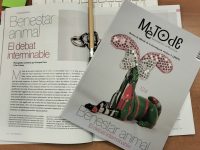
We have all heard of the horrors of eugenics in the first half of the 20th century. The Holocaust, of course, is a reminder of the Nazi «cleansing» aimed at preserving the purity of the Aryan race, with the systematic imprisonment and extermination of Jews and Gypsies, among other groups. However, it was Francis Galton who coined the word eugenics in the first decade of the 20th century. Like many British aristocrats, he was concerned about the low birthrate among aristocratic families and the high birthrate among the working classes, who he believed were clearly inferior in cognitive ability and physical measures such as health, height, and beauty. A year before his death, Galton wrote that only those with the best genes should reproduce (to have the best children, of course) and that the mentally deficient and short-tempered should be sterilised.
Galton’s ideas were never directly applied in Britain, but there were strong advocates who imported them to the rest of the European continent, such as Germany, but also to Sweden and the United States, where in the 1920s, long before the Third Reich, laws were passed in various states allowing first the imprisonment and then the sterilisation of people described as feeble-minded and categorised as idiots, retards, or imbeciles. And there was room for everyone: people with mental problems, dyslexics, prostitutes, raped girls and rebellious teenagers, and above all the poorest and most destitute, who had no financial resources, were starving because of the economic recession and, of course, had no access to basic food or health care. For example, mothers of children whose infections or vitamin deficiencies during pregnancy and early life had caused developmental disorders. Eugenics and «social cleansing» were used as an excuse to sterilise tens of thousands of people under the misguided pretext of ridding society of «defective» genes. At the same time, competitions were held at village and town fairs to find and award the «ideal child» among babies and toddlers. See what the ignorance of those who think they have the truth can do!
We may think that a century later we are not the same, but ideas are resilient and keep coming back in one form or another. A few months ago, an association study came out that analysed genome-wide polymorphic variants in more than three million genetic profiles (mostly from people in the United States) to identify genetic variants that might better predict success in school and in life. As much as they searched the entire genome, they found that the most important correlation was with the social and economic status of the family you come from. Not because genetics has nothing to do with intellectual ability – which it clearly does, although the matter is complex and many different genes contribute – but because in a society that does not provide universal education and quality health care for all, the main handicap is that no matter how smart you are, you cannot devote yourself to studying and going to university if you have to work to support yourself. As if that were not enough, a recent article correlates extremely poor neighbourhoods with poor air quality, full of neurotoxic pollutants that interfere with children’s neurocognitive development in the early years of life. So it is clearly not genes, it is an environmental effect. Maybe we need to rethink that.





